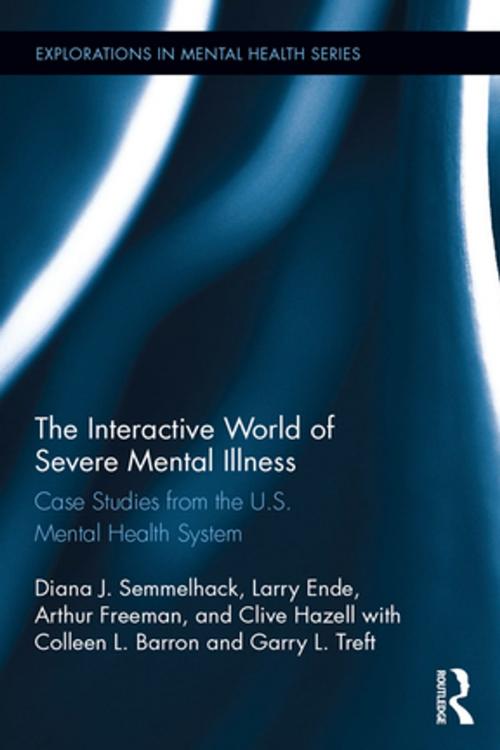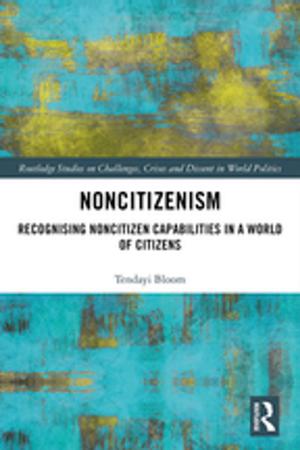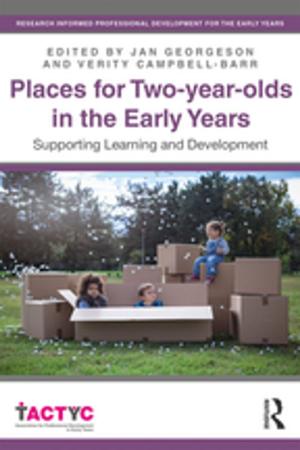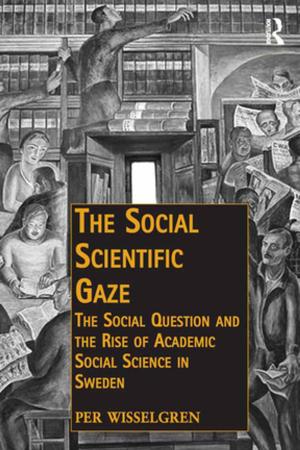The Interactive World of Severe Mental Illness
Case Studies of the U.S. Mental Health System
Nonfiction, Health & Well Being, Psychology, Counselling, Mental Health| Author: | Diana J. Semmelhack, Larry Ende, Arthur Freeman, Clive Hazell, Colleen L. Barron, Garry L. Treft | ISBN: | 9781317802846 |
| Publisher: | Taylor and Francis | Publication: | July 3, 2015 |
| Imprint: | Routledge | Language: | English |
| Author: | Diana J. Semmelhack, Larry Ende, Arthur Freeman, Clive Hazell, Colleen L. Barron, Garry L. Treft |
| ISBN: | 9781317802846 |
| Publisher: | Taylor and Francis |
| Publication: | July 3, 2015 |
| Imprint: | Routledge |
| Language: | English |
In our society, medication is often seen as the treatment for severe mental illness, with psychotherapy a secondary treatment. However, quality social interaction may be as important for the recovery of those with severe mental illness as are treatments. This volume makes this point while describing the emotionally moving lives of eight individuals with severe mental illness as they exist in the U.S. mental health system. Offering social and psychological insight into their experiences, these stories demonstrate how patients can create meaningful lives in the face of great difficulties.
Based on in-depth interviews with clients with severe mental illness, this volume explores which structures of interaction encourage growth for people with severe mental illness, and which trigger psychological damage. It considers the clients’ relationships with friends, family, peers, spouses, lovers, co-workers, mental health professionals, institutions, the community, and the society as a whole. It focuses specifically on how structures of social interaction can promote or harm psychological growth, and how interaction dynamics affect the psychological well-being of individuals with severe mental illness.
In our society, medication is often seen as the treatment for severe mental illness, with psychotherapy a secondary treatment. However, quality social interaction may be as important for the recovery of those with severe mental illness as are treatments. This volume makes this point while describing the emotionally moving lives of eight individuals with severe mental illness as they exist in the U.S. mental health system. Offering social and psychological insight into their experiences, these stories demonstrate how patients can create meaningful lives in the face of great difficulties.
Based on in-depth interviews with clients with severe mental illness, this volume explores which structures of interaction encourage growth for people with severe mental illness, and which trigger psychological damage. It considers the clients’ relationships with friends, family, peers, spouses, lovers, co-workers, mental health professionals, institutions, the community, and the society as a whole. It focuses specifically on how structures of social interaction can promote or harm psychological growth, and how interaction dynamics affect the psychological well-being of individuals with severe mental illness.















